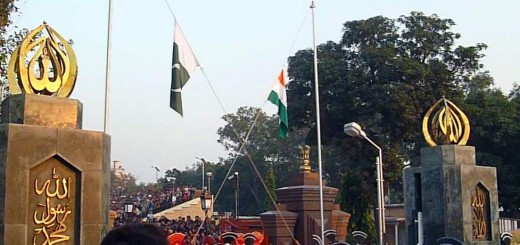Covid-19 Converting a Threat into an Opportunity: Rashid Ali
Covid-19 Converting a Threat into an Opportunity: Rashid Ali
Covid-19 pandemic has shaken the world economy due to unprecedented lock downs enforced by different states to control this contagious disease. Even developed nations and there health care systems are failed to control the outbreak of pandemic. The IMF, World Bank ,ADB and world leading economist are fearing that it may trigger global recession. Undoubtedly present situation is posing threats for developing economies like Pakistan. Financial experts are forecasting mass unemployment, poverty and slow economic growth. But there is silver lining in dark clouds if we are able to convert this threat into an opportunity by focusing on some positives that are beneficial for our peculiar native conditions.
Being the third world and developing economy, our economy has not fully integrated in global economy. So the effect of recession would not be felt with same magnitude in Pakistan as would be felt by the developed nations. Historical evidence shows that impact of 2007 recession on Pakistan was far lesser than developed economies because our contribution in international trade is negligible. So far now spread of Covid-19 so many negative news but it has some positives for our economy such as decrease in fuel demand and price, reducing tourism to almost zero, increasing the importance of necessities as compared to luxuries and last but not the least reduction in global air pollution.
Now we will examine how these positives can benefit our economy and increase the pace of growth and development in the country. The reduction of air pollution and decrease of emission of greenhouse gases will have positive impact on global warming. Pakistan is in the list of top ten countries which are affected by global warming despite the fact that our contribution is negligible. Our agriculture is products is decreasing due to unexpected rains at the time of harvest and severe climate changes. Decrease in emission of greenhouse gases is a good news for Pakistan.
If we exclude the import fuel and machinery and exports of textile products our economy is predominantly a local economy. The fear of recession or recession itself has little effect on our exports because our major export are necessities goods. Suppose the worst scenario happens and exports decreases drastically the imports will also decrease with same ratio and net effect on balance of payment would be zero. Moreover percentage of export in GDP is less than 9 so cut in exports does not hurt GDP to a great deal.
More than 30 percent decrease in fuel prices in this month will help economy in many ways. It will help to reduce the inflation to single digits. Ease in inflation will give SBP more space for easing of monetary policy that is hurting the business due to historical high borrowing rates. The reduction in fuel price means reduction in electricity price and also reduce the load shedding. 28 percent of import bill consist of fuel imports and due to 30 percent decrease in its prices. In other words our import bill will reduce by 5 to 6 billion dollar, this will help in reducing trade deficit and current account deficit. The cheaper fuel and uninterrupted power supply will reduce the cost of agriculture and manufacturing.
The upcoming wheat harvest season which would not be effected to much with Covid-19 will provide employment to the poorest in the country. The money used for procurement of wheat would serves as life blood for rural economy. It will increase the purchasing power of poorest and increase the demand of basic necessities which will boast the economic growth. After completion of harvest, sowing season of cotton and rice will start which is also an labor extensive activity. It will provide employment opportunity to large number of rural population. According to a World Bank report 80 percent of total population below poverty line lives in rural areas of Pakistan. Next four months are the months of employment for this 80 percent poors. In the December when cotton and rice crop will be ready, the vaccine for Covid-19 would be prepared and world demand for goods and services would be normalized.
Another blessing in disguise of Covid-19 for Pakistan is stop of tourism, now no Pakistani tourist will go abroad for spending holidays for next few months. The money spent by these tourist, Zairian and performer of Ummerah outside Pakistan, resulting in drainage of foreign exchange would be spent locally that will increase demand of goods and services and serves as economic booster. In 2019, 2.1 million Pakistani performed Umrah, the exact figure of holiday tourist and Zairine is not available. If each person on average spend RS. 1 lac on Umrah, total amount spent by Pakistani people would be 210 billion whereas PM has announced relief package for poor amounting 200 billion. If the Saudi Govt also bans Hajj this year due to the fears of spread of Covid-19 we will have another 85 billion Rs. Available that would be spend locally.
All these positives will help the poor families to rise above poverty level and this bottom up approach will boast the economic growth as a whole. Beside fighting against Covid-19 it’s time to employee full resources to increase agriculture products and facilitate large scale manufacturing by providing uninterrupted power and gas supply. This will strengthen our local economy and effect of recession would be minimized.














